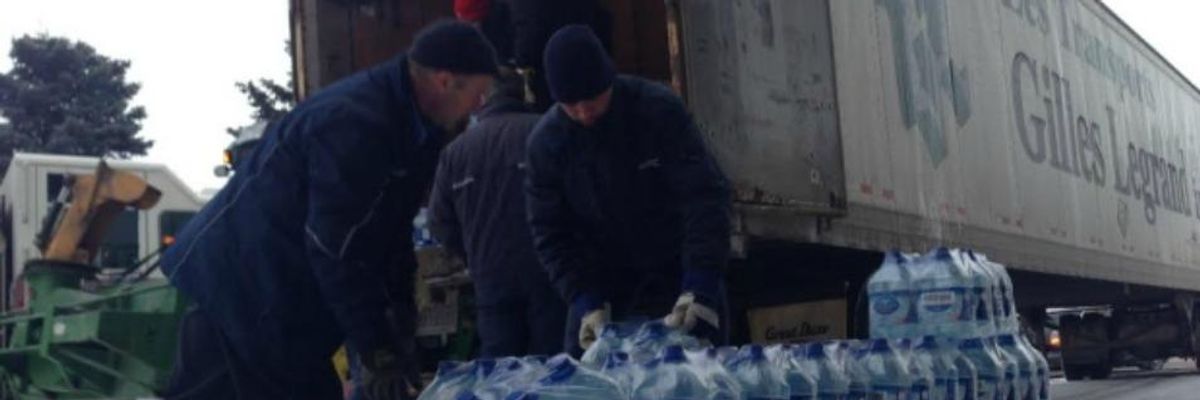Residents of Longueuil, Canada entered their second day of a no-drinking order on Friday, leaving 230,000 people without tap water as the slow cleanup of a diesel fuel spill earlier this week continued.
At a press conference Friday morning, officials said they were waiting for the results of a fourth round of water quality testing.
The advisory was put into place Wednesday after the Centre d'epuration Rive-Sud, a waste water treatment plant, leaked 7,400 gallons of diesel fuel into the sewers, where it eventually found its way into the St. Lawrence River, which supplies drinking water for the city. Officials lifted the ban Wednesday afternoon, but that decision proved to be hasty as residents continued to report the smell of gas in their water; the order was then reinstated and has remained in place since then.
But the city's woes did not stop with its water crisis. Urgence-Environnement, announced later Wednesday that Longueuil, located on Montreal's South Shore, may face legal action for its slow response to the spill. The leak occurred at 4:00am ET, and Urgence-Environnement was not notified until just before 9:30am. By the time an emergency team was dispatched to the scene, much of the damage had already been done.
"The reservoir completely emptied itself and the diesel infiltrated the city's sewage system," said Christian Blanchette, the regional coordinator for Quebec's environmental ministry, during a press conference Thursday morning. "It was pumped to Ile Charron, the water treatment plant for the city of Longueuil."
"Between the wee hours of the morning and 9 a.m., something should have been done but wasn't," Blanchette said.
CBC also reported that Longueuil fumbled its attempt to provide bottled water to city residents. Officials arrived late at distribution centers, forcing people to wait in long lines for limited supplies.
The Canadian government is reportedly intervening and taking control of Longueuil's filtration plant, according to CBC reporter Steve Rukavina.

